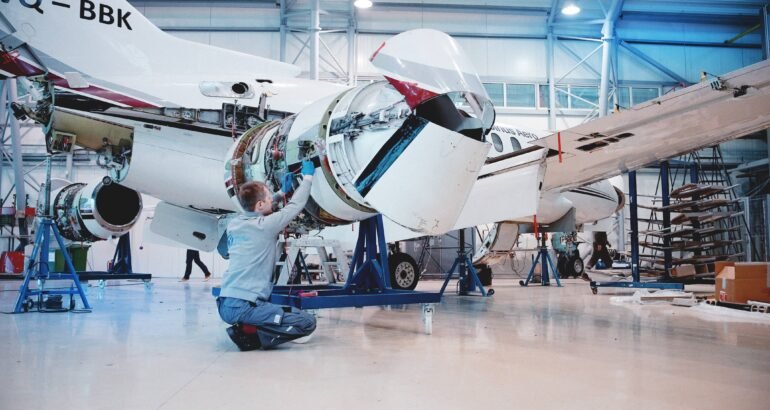Explore the critical role of aircraft maintenance parts suppliers in aviation safety and efficiency. Learn about the evolution of parts distribution, the importance of reliable components, and future trends in the industry.
I. Introduction
- Overview of Aircraft Maintenance Industry
- Summary: Explore the critical role of maintenance in ensuring aircraft safety and reliability, highlighting the importance of sourcing high-quality parts.
- The Evolution of Aircraft Parts Distribution
- Summary: Trace the development of parts distribution from traditional methods to modern, digital platforms, emphasizing efficiency and global reach.
II. The Importance of Reliable Aerospace Components
- Safety and Reliability in Aviation
- Summary: Discuss how the quality of aerospace components directly impacts the safety and performance of aircraft.
- Criteria for Choosing Reliable Suppliers
- Summary: Outline key factors such as certification, quality assurance, and track record that define a reliable aerospace component supplier.
III. Navigating the World of Airplane Spare Parts for Sale
- Challenges in Sourcing Spare Parts
- Summary: Address common challenges in sourcing airplane spare parts, including availability, compatibility, and counterfeit parts.
- Strategies for Effective Sourcing
- Summary: Offer strategies for overcoming sourcing challenges, such as leveraging technology, building strong supplier relationships, and utilizing industry networks.
IV. The Role of Commercial Aviation Spares in Fleet Management
- Managing a Diverse Fleet
- Summary: Discuss the complexities of managing spare parts for a diverse fleet and the role of inventory management systems.
- Innovations in Spare Parts Logistics
- Summary: Highlight recent innovations in logistics and supply chain management that have improved the availability and delivery of commercial aviation spares.
V. The Rise of Online Aircraft Parts Stores
- Benefits of Online Stores
- Summary: Explore the advantages of using online platforms for parts procurement, including increased accessibility, transparency, and competitive pricing.
- How to Evaluate an Online Aircraft Parts Store
- Summary: Provide criteria for evaluating the credibility and reliability of online aircraft parts stores, focusing on user reviews, customer service, and return policies.
VI. Conclusion
- The Future of Aircraft Parts Distribution
- Summary: Speculate on future trends in aircraft parts distribution, including digital transformation, blockchain for authenticity verification, and the impact of 3D printing on spare parts manufacturing.
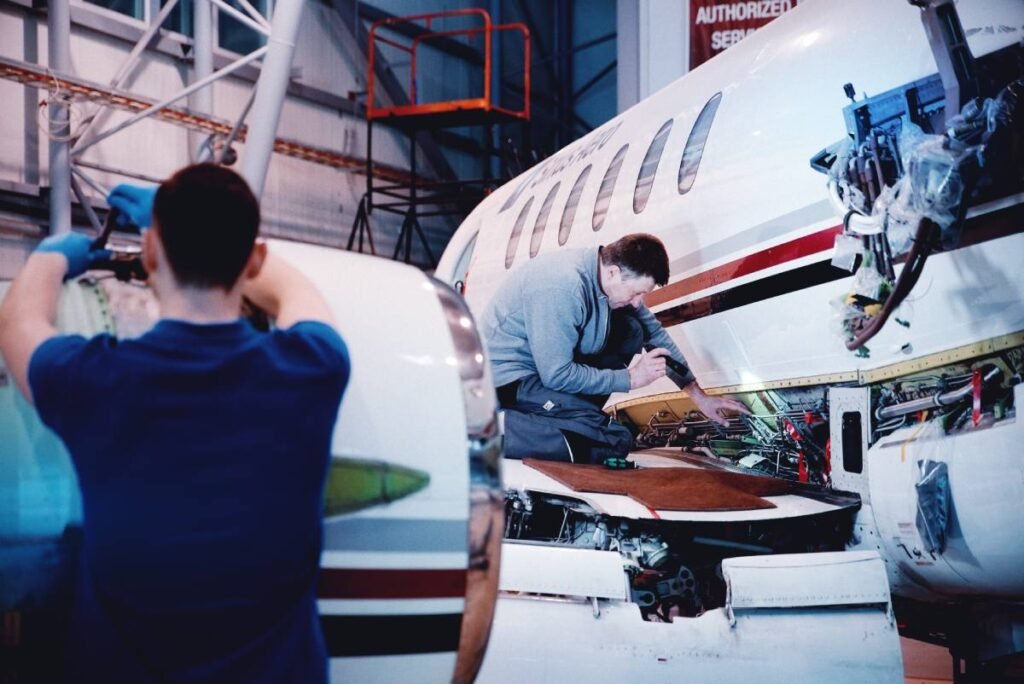
The Critical Role of Aircraft Maintenance Parts Suppliers
The aviation industry’s commitment to safety and efficiency hinges significantly on the reliability of aircraft maintenance parts suppliers. These suppliers are the unsung heroes in the aviation sector, ensuring that every component, from critical engine parts to the smallest fasteners, adheres to the highest standards of quality and safety. The evolution of aircraft parts distribution from traditional, paper-based catalogs to digital platforms has transformed the landscape, offering enhanced transparency, efficiency, and global connectivity. This digital shift has not only streamlined procurement processes but also minimized the downtime of aircraft, directly impacting the profitability and operational efficiency of airlines worldwide.
Evolution of Aircraft Parts Distribution
The transition to digital platforms in the distribution of aircraft parts marks a significant leap forward in the aviation industry. This evolution has facilitated a more streamlined, efficient, and transparent supply chain, enabling airlines and maintenance providers to access a global inventory of parts with just a few clicks. The rise of online aircraft parts stores has democratized access to essential components, allowing even smaller operators to compete on a level playing field. However, this digital transformation also brings challenges, including the need for stringent quality control and the risk of counterfeit parts, underscoring the importance of choosing reputable and reliable suppliers.
FAQs
- How has the distribution of aircraft parts evolved over time?
- The distribution of aircraft parts has evolved from manual, paper-based systems to digital platforms, significantly enhancing efficiency, transparency, and global reach. This evolution has streamlined procurement processes and reduced aircraft downtime.
- Why is the reliability of aircraft maintenance parts suppliers critical?
- Reliable suppliers ensure the safety and efficiency of aviation operations by providing high-quality parts that meet strict industry standards. This reliability is crucial for maintaining the safety, performance, and regulatory compliance of aircraft.
- What challenges does the digital transformation of parts distribution present?
- While digital transformation offers many benefits, it also presents challenges such as ensuring quality control, mitigating the risk of counterfeit parts, and selecting reputable suppliers in a vast online marketplace.
The Importance of Reliable Aerospace Components
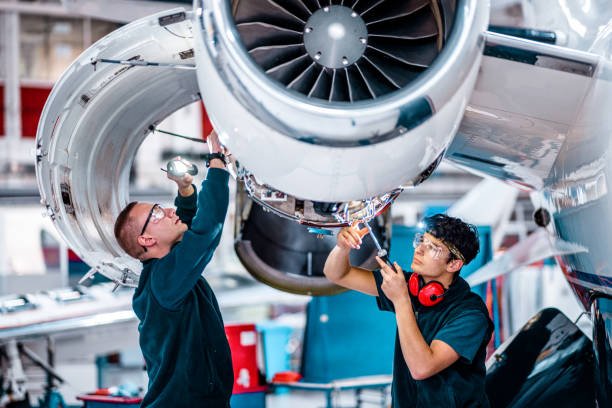
Safety and Performance Depend on Quality Components
In the realm of aviation, the safety and performance of an aircraft are directly influenced by the quality of its components. Reliable aerospace components are foundational to ensuring that aircraft operate safely and efficiently. The stakes in choosing suppliers are incredibly high, as a single failure can have catastrophic consequences. This reality places immense responsibility on suppliers to meet and exceed industry standards, pushing for continuous innovation and strict adherence to quality control measures. The focus on reliability extends beyond just the parts themselves to encompass the entire supply chain, from manufacturing to delivery.
Choosing the Right Aerospace Component Suppliers
Selecting the right aerospace component suppliers is a nuanced process that involves more than comparing prices and delivery times. It requires a deep understanding of each supplier’s commitment to quality, their certification status, and their track record in the industry. This selection process is critical to ensuring the long-term safety and reliability of aviation operations. Airlines and maintenance providers must consider factors such as the supplier’s ability to provide comprehensive documentation, their adherence to international safety standards, and their history of innovation and reliability. Making informed decisions in this area is crucial for maintaining the integrity of the aviation supply chain.
FAQs
- What makes aerospace components reliable?
- Reliability in aerospace components is achieved through rigorous quality control, adherence to international safety standards, and continuous innovation by suppliers to meet the demanding needs of the aviation industry.
- How do airlines and maintenance providers choose the right suppliers?
- They evaluate suppliers based on their certification status, track record for quality and reliability, ability to meet delivery deadlines, and commitment to safety standards, among other criteria.
- Why is the supplier selection process so critical in aviation?
- The selection process is critical because the quality and reliability of aerospace components directly impact the safety, performance, and regulatory compliance of aircraft, making it essential to choose suppliers that meet the highest standards.
Navigating the World of Airplane Spare Parts for Sale
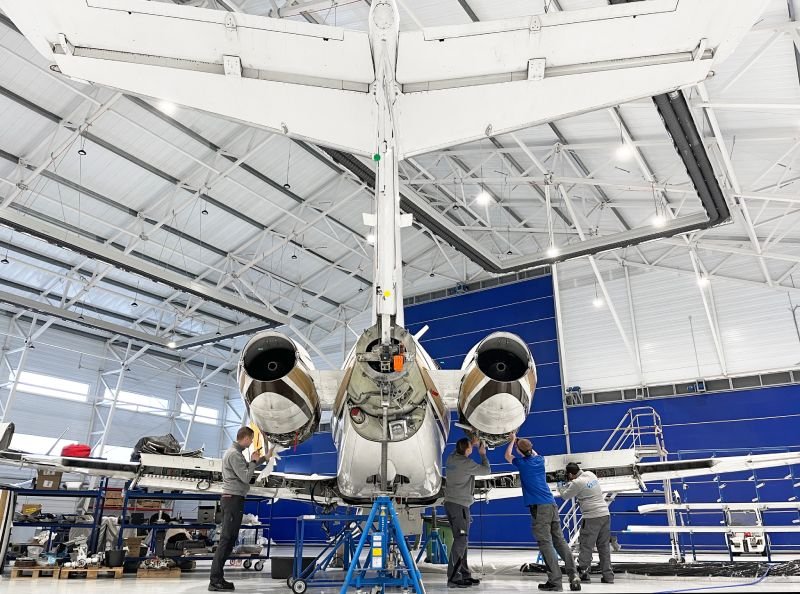
Challenges in Sourcing Spare Parts
Finding the Right Match in a Sea of Options
Navigating the vast marketplace of airplane spare parts for sale presents a unique set of challenges. The primary concern for maintenance teams and procurement specialists is not just finding a part but ensuring it’s the correct fit for their specific aircraft model and configuration. With the myriad of manufacturers, models, and part numbers, the risk of ordering an incompatible component is high. This complexity is compounded by the urgency often associated with obtaining spare parts to keep aircraft operational, minimizing downtime, and ensuring schedules remain unaffected. The aviation industry’s reliance on precise specifications and strict adherence to safety standards makes this process even more daunting, requiring a meticulous approach to sourcing.
The Peril of Counterfeit Parts
Another significant challenge in the airplane spare parts market is the prevalence of counterfeit components. These parts, often indistinguishable from genuine articles at first glance, pose a serious risk to aircraft safety and performance. The aerospace industry has been battling counterfeit parts for years, implementing various measures to safeguard the supply chain. However, the sophistication of counterfeit operations means that buyers must be ever vigilant, relying on trusted suppliers and verifying the authenticity of parts through certified documentation and traceability. The consequences of inadvertently installing a counterfeit part can be catastrophic, emphasizing the need for rigorous quality control measures in the procurement process.
Strategies for Effective Sourcing
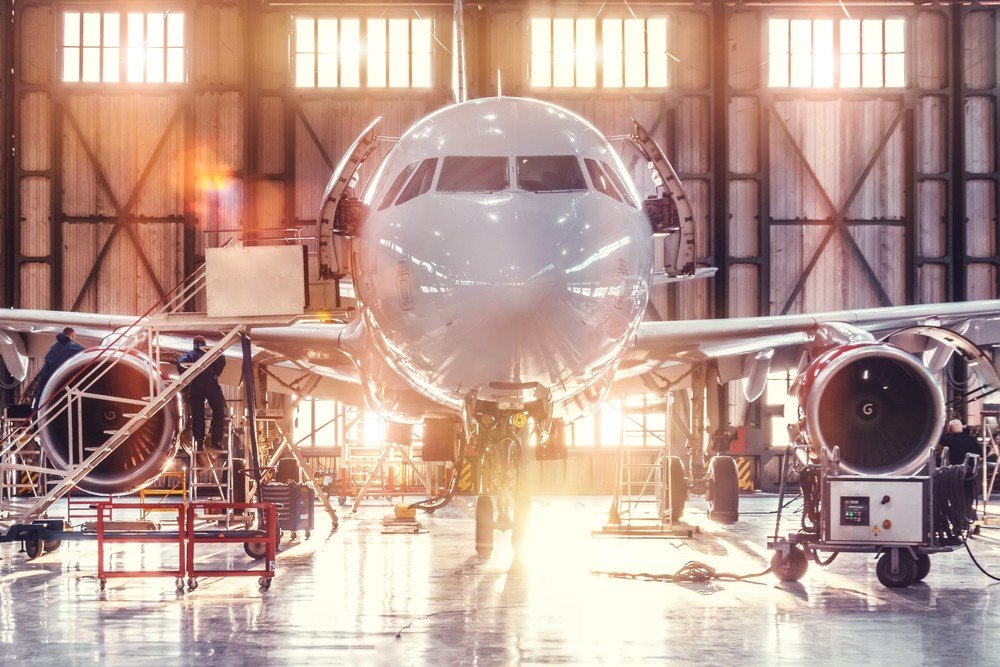
Leveraging Technology for Smarter Procurement
In response to the challenges of sourcing airplane spare parts, many organizations are turning to technology for solutions. Advanced inventory management systems, blockchain for traceability, and AI-driven platforms are becoming increasingly prevalent, offering more efficient ways to manage parts procurement. These technologies enable buyers to quickly identify the right parts, verify their authenticity, and track their procurement history, significantly reducing the risk of errors or fraud. Furthermore, digital marketplaces and online aircraft parts stores have streamlined the procurement process, providing access to a global inventory and facilitating competitive pricing. By embracing these technological advancements, companies can overcome many of the traditional obstacles associated with sourcing spare parts.
Building Strong Supplier Relationships
Establishing and maintaining strong relationships with reputable aircraft parts suppliers is a critical strategy for effective sourcing. These relationships ensure access to high-quality, authentic parts and can often expedite the procurement process. By working closely with suppliers, buyers can gain insights into market trends, receive alerts about potential shortages, and negotiate better terms. Additionally, suppliers with a deep understanding of their clients’ needs can offer tailored solutions and support, further enhancing the efficiency of the sourcing process. In an industry where time is of the essence, having a network of reliable suppliers can make a significant difference in operational success.
FAQs
- How can I ensure the airplane spare parts I purchase are genuine?
- Ensure purchases are made from certified and reputable suppliers who provide full traceability and documentation for their parts. Utilizing platforms and technologies that verify the authenticity of parts can also mitigate the risk of counterfeit components.
- What strategies can be employed to minimize the risk of sourcing incompatible parts?
- Utilize advanced inventory management systems that offer detailed part specifications and compatibility information. Building strong relationships with suppliers who understand your fleet’s specific needs can also help in sourcing the correct parts.
- How can technology improve the sourcing of airplane spare parts?
- Technology, such as blockchain for traceability, AI for matching parts with aircraft models, and digital marketplaces, can streamline the procurement process, ensure part authenticity, and provide access to a global inventory, making sourcing more efficient.
The Role of Commercial Aviation Spares in Fleet Management
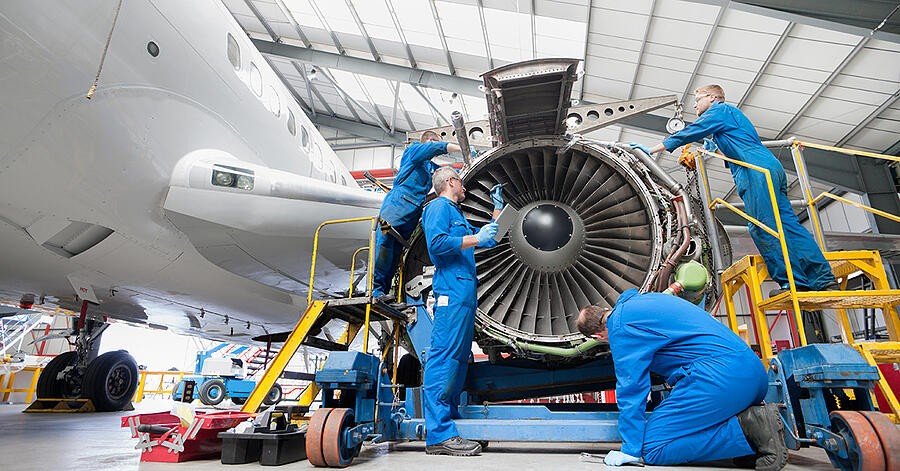
Managing a Diverse Fleet
Commercial aviation spares are crucial in managing the complexities of a diverse fleet. Each aircraft model may require specific parts that differ in design, functionality, and compliance standards, making inventory management a challenging task. Effective fleet management relies on a meticulous approach to spare parts inventory, ensuring that the right parts are available at the right time. This not only minimizes downtime but also extends the operational life of each aircraft. Advanced inventory management systems have become indispensable tools, enabling airlines to predict maintenance needs and streamline the procurement process, thus ensuring that their fleets remain airworthy with minimal delays.
Innovations in Spare Parts Logistics
The logistics of commercial aviation spares have seen significant advancements, driven by the need for efficiency and speed in the global aviation industry. Innovations such as real-time tracking, automated warehousing, and predictive analytics have transformed how airlines manage their spare parts supply chains. These technologies allow for quicker response times to maintenance needs, reducing the likelihood of flight cancellations due to parts unavailability. Furthermore, the integration of blockchain technology promises to further enhance the transparency and security of the supply chain, ensuring that parts are not only delivered more efficiently but also meet the highest standards of authenticity and quality.
FAQs
- How do airlines manage spare parts for a diverse fleet?
- Airlines use advanced inventory management systems to track and predict the need for spare parts across different aircraft models, ensuring that the right parts are available when needed.
- What innovations are improving spare parts logistics in aviation?
- Innovations include real-time tracking, automated warehousing, predictive analytics, and blockchain technology, all aimed at increasing efficiency and transparency in spare parts logistics.
- Why is blockchain technology significant for aviation spare parts logistics?
- Blockchain technology enhances the transparency and security of the supply chain, ensuring the authenticity and quality of aviation spares while streamlining logistics processes.
The Rise of Online Aircraft Parts Stores
Benefits of Online Stores
Online aircraft parts stores have revolutionized the procurement process for airlines and maintenance providers. These platforms offer a wide range of benefits, including access to a global inventory, competitive pricing, and 24/7 availability. This accessibility allows for quicker decision-making and procurement, essential in the fast-paced aviation industry. Moreover, online stores provide detailed product information and customer reviews, aiding buyers in making informed decisions. The convenience and efficiency of online shopping have made it a preferred choice for sourcing airplane spare parts for sale, significantly impacting the traditional parts distribution model.
How to Evaluate an Online Aircraft Parts Store
When evaluating an online aircraft parts store, several criteria are essential for ensuring reliability and quality. First, the credibility of the store should be assessed through customer reviews, industry certifications, and its track record. Additionally, the level of customer service, including support for returns and disputes, indicates the store’s commitment to customer satisfaction. Buyers should also consider the store’s policies on shipping and handling, especially for urgent orders, to ensure that parts arrive when needed. By carefully selecting online stores based on these criteria, buyers can mitigate risks and ensure that they receive high-quality, authentic parts for their maintenance needs.
FAQs
- What are the benefits of using online aircraft parts stores?
- Benefits include access to a global inventory, competitive pricing, 24/7 availability, detailed product information, and customer reviews, which aid in making informed purchasing decisions.
- How can buyers evaluate the reliability of an online aircraft parts store?
- Buyers should look at customer reviews, industry certifications, customer service quality, and policies on shipping and returns to evaluate a store’s reliability and commitment to quality.
- What should buyers consider regarding shipping policies of online aircraft parts stores?
- Buyers should consider the store’s shipping times, costs, and handling of urgent orders to ensure that parts arrive promptly and meet their maintenance schedules.
Conclusion
The Future of Aircraft Parts Distribution
The future of aircraft parts distribution is poised for further innovation, with digital transformation leading the way. Emerging technologies like blockchain are expected to play a significant role in enhancing the traceability and authenticity of aircraft parts, combating the issue of counterfeit components. Additionally, the advent of 3D printing technology promises to revolutionize the supply chain by enabling on-demand production of parts, reducing lead times, and potentially lowering costs. As the industry continues to evolve, the focus will remain on improving efficiency, transparency, and reliability in the distribution of aircraft parts, ensuring that aviation continues to be one of the safest modes of transportation.
Embracing Digital Transformation and Innovation
As we look to the future, the aviation industry’s embrace of digital transformation and innovation will be critical in addressing the challenges of today and tomorrow. The integration of advanced technologies into the supply chain will not only enhance operational efficiency but also improve the sustainability of aviation by optimizing inventory management and reducing waste. The commitment to innovation, coupled with a steadfast focus on safety and quality, will ensure that the industry can meet the growing demand for air travel while maintaining the highest standards of safety and reliability.
FAQs
- What technological innovations are shaping the future of aircraft parts distribution?
- Blockchain for enhancing parts traceability and authenticity, and 3D printing for on-demand production of parts, are among the key technologies shaping the future.
- How will digital transformation impact the aviation industry?
- Digital transformation will improve efficiency, transparency, and reliability in the distribution of aircraft parts, leading to reduced downtime for aircraft and enhanced safety.
- What role does innovation play in the sustainability of aviation?
- Innovation in supply chain management and parts production, such as 3D printing, plays a crucial role in reducing waste, optimizing inventory, and ultimately contributing to the sustainability of aviation.
